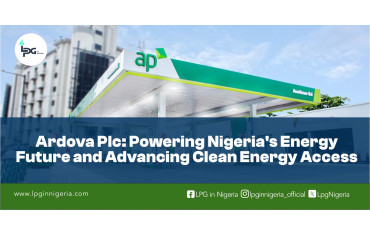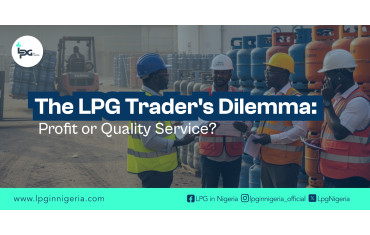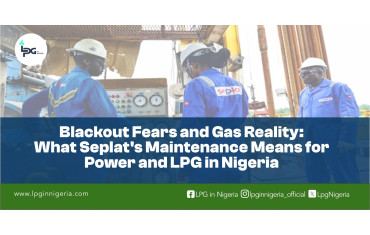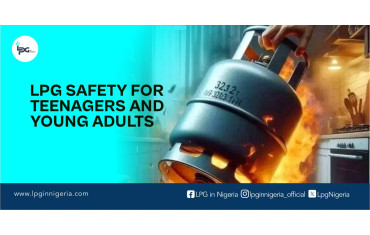- 4898
- 1
Sharing Ideas and Updates on LPG in Nigeria and related information to enable effective collaboration within the LPG Value Chain
COP28: Clean Cooking Is Attainable In 2024 - IEA And AFDB Group

"80% of households in sub-Saharan Africa rely on biomass as a source of energy for cooking,” President Suluhu Hassan.
“Africa requires $4bn billion a year in investment to provide 250 million clean cooking equipment to 250 million women by 2030," says Adesina.
“Second, accessibility and affordability to clean cooking solutions should be assured through the development of Liquefied Petroleum Gas upstream capacity, especially for production, storage, and distribution infrastructure.” Adeshina.
The Executive Director of the International Energy Agency (IEA), Fatih Birol, emphasized Africa's need for $4 billion annually to ensure 250 million people access clean cooking energy. He stressed that developed nations must elevate their financial support to reach 900 million households in Africa. Birol cautioned that without addressing clean cooking in Africa, global decarbonization efforts would lack significance, calling it a humanitarian imperative.
During a high-level event at COP28 in Dubai, Birol announced plans to prioritize clean cooking on the IEA's global conference agenda in February 2024, engaging over 50 governments. Akinwumi Adesina, President of the African Development Bank Group, pledged to allocate up to 20 percent of yearly energy lending for clean cooking solutions, generating $2 billion over a decade. He urged governments to allocate 5 percent of the $70 billion annual energy investment for clean cooking.
Adesina emphasized the importance of accessibility and affordability in clean cooking solutions, urging multilateral development banks to allocate a significant portion of their annual energy financing for this cause. Presently, nearly a billion Africans lack clean cooking, relying on harmful sources like biomass or kerosene, causing severe indoor air pollution and claiming the lives of 600,000 women and children yearly.
The economic and health costs are staggering, amounting to $800 billion and $1.4 trillion annually, respectively. Adesina stressed the attainability of providing clean cooking in Africa, advocating for prioritizing women and children's safety and dignity. He highlighted the broader benefits, including environmental preservation and reducing CO2 emissions by 1.5 g tonnes by 2030.
An event titled "A Call for Action: Universal Clean Cooking Access in Africa" introduced the Africa Clean Cooking Consortium, a collaborative effort involving the African Union Commission, five African governments, Ireland, and the private sector, aiming to accelerate clean cooking solutions across the continent. Adesina reiterated the African Development Bank's commitment to partnerships for universal clean cooking access in Africa.
Sierra Leone's President, Julius Maada Bio, affirmed African governments' commitment to prioritize clean cooking, urging solidarity among African leaders to elevate this issue to global attention. Ireland's Minister for Climate, Eamon Ryan, commended African leaders' unity on climate change and urged developed nations to fulfill their financial commitments to developing countries.
Several African governments, including Kenya and Sierra Leone, have taken steps to prioritize clean cooking, establishing dedicated units to accelerate access. Tanzanian President Samia Suluhu Hassan launched the African Women Clean Cooking Support Programme during COP28, underscoring the ongoing regional efforts to address this critical issue.
What is the impact on Nigeria?
The discourse from COP28 could serve as a catalyst for Nigerian policymakers to meticulously review their energy policies, recognizing the pressing need to elevate clean cooking solutions as a top priority. Despite Nigeria's strides in sustainable policies, a considerable segment of its population, particularly those in rural areas, still heavily relies on traditional fuels. If sustainable policies are to be effective, they must directly address the needs of these communities.
Reassessing budget allocations for energy initiatives becomes imperative for Nigeria. The COP28 discussions, highlighting the financial commitments of various organizations, might urge Nigeria to explore similar funding avenues or forge partnerships dedicated to tackling the clean cooking challenge.
By shedding light on the health and environmental repercussions linked to biomass and harmful cooking fuels, this discourse could heighten awareness among Nigerian citizens. This newfound awareness may spur a heightened demand for cleaner cooking solutions and rally support for government-driven endeavors aimed at confronting these critical issues.
Nigeria, recognizing the collective strength in collaboration, might endeavor to partner with other African nations and the African Union. By pooling resources, sharing knowledge, and coordinating regional initiatives, these partnerships could substantially enhance the effectiveness of efforts directed at resolving the clean cooking challenge.
Emphasizing the safety and dignity concerns faced by women and children due to traditional cooking practices may prompt Nigerian authorities to prioritize this vulnerable demographic within their policy frameworks. This targeted approach could result in tailored programs that directly address the needs of these at-risk groups.
Leveraging the COP28 platform, Nigeria could actively engage with international bodies like the African Development Bank and other strategic partners to garner support for implementing clean cooking initiatives within the country. This engagement could pave the way for access to crucial resources and expertise necessary for effective implementation.
Drawing inspiration from successful endeavors in other African nations, such as Kenya and Sierra Leone establishing specialized units for clean cooking, Nigeria might adopt similar strategies or develop context-specific programs. These insights could guide Nigeria in structuring and implementing initiatives tailored to its unique socio-economic landscape.
















Emmanuel Donald ELOKO
14 December 2023 - 12:55pmHello Dear Sir/Ma,
Greetings to everyone in the platform with happy season and new year 2024 in advance.
Please my names are Emmanuel Donald ELOKO, I am a Bachelor Degree holder in Business Administration and management, with work experience in LPG, Gas plant and more.
So I posted here for Gas plant operator or manage it for the owner.
if any member or CEO of this honorable platform looking for whom to manage or operate his or her gas plant, I am available for the job.
Here is my contact: +234(0)8061258654. +234(0)8087019396. Email: eloma2014@gmail.com Therefore my curriculum vitae is also available on request.
Thank you all.
Reply